
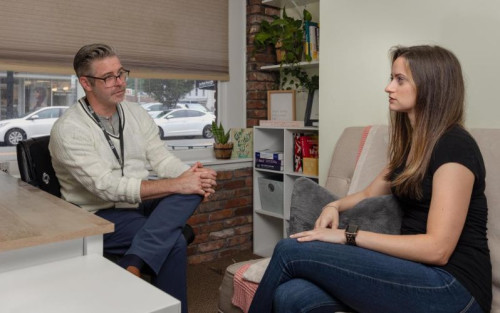





Excel Treatment Center
Verified Center
This provider's information has been quality-checked by Recovery.com's Research Team for accuracy and completeness, including center verification through appropriate third-party organizations.
Treatment Focus
This center treats substance use disorders and co-occurring mental health conditions. Your treatment plan addresses each condition at once with personalized, compassionate care for comprehensive healing.
Primary Level of Care
Outpatient treatment offers flexible therapeutic and medical care without the need to stay overnight in a hospital or inpatient facility. Some centers offer intensive outpatient program (IOP), which falls between inpatient care and traditional outpatient service.
Treatment Focus
This center treats substance use disorders and co-occurring mental health conditions. Your treatment plan addresses each condition at once with personalized, compassionate care for comprehensive healing.
Primary Level of Care
Outpatient treatment offers flexible therapeutic and medical care without the need to stay overnight in a hospital or inpatient facility. Some centers offer intensive outpatient program (IOP), which falls between inpatient care and traditional outpatient service.
Provider's Policy
Excel Treatment Center works with most PPO insurance plans which can cover 100% of treatment after deductibles. Our insurance experts provide a free, confidential benefit verification so you have a clear picture of what the costs of treatment would be at our facility and how to maximize your insurance benefits.
Excel Treatment Center
Excel Treatment Center
About Excel Treatment Center
Excel Treatment Center provides outpatient treatment for addiction and co-occurring mental health disorders. They treat young and midlife adults, using personalized care plans to meet unique needs with compassion and respect. Their outpatient programs include a partial hospitalization program (PHP), intensive outpatient program (IOP), outpatient program, and telehealth. Clients can reside in nearby sober living homes as they attend treatment.
Personalized And Comprehensive Care
Excel Treatment Center begins treatment with psychiatric evaluations and assessments to personalize treatment. Clients have a primary therapist and case manager throughout their care. Nearby sober living provides a safe and supportive environment for clients in early recovery. Excel Treatment Center additionally offers employment opportunities to residents and alumni at a nearby recovery coffee shop, The Good Bean.
Evidence-Based And Holistic Therapies
Excel Treatment Center’s evidence-based services include cognitive behavioral therapy (CBT), dialectical behavioral therapy (DBT), psychoeducation, medication management, weekly counseling, family therapy, and relapse prevention planning. They also provide wellness services like yoga, expressive arts, mindfulness, and meditation. Excel Treatment Center treats co-occurring depression, anxiety, OCD, schizophrenia, personality disorders, body dysmorphia, trauma/PTSD, and grief alongside drug and alcohol addictions.
Flexible, Structured Treatment
Excel Treatment Center’s flexible treatment options provide various levels of intensity. They arrange for young adults to continue schooling and allow phones and laptops during free time to help clients stay connected to work and family. In IOP, clients attend clinical treatment up to 6 days a week for 6-30 hours. They provide day and evening sessions for more flexibility. Families can visit their loved ones in sober living each Sunday.

Highlights from the Center
Highlights
These highlights are provided by and paid for by the center.
Joint Commission Accredited
Customized Treatment Plans
Co-Occurring Disorders Treatment
Trauma-Informed Care
Center Overview
Treatment Focus
This center treats substance use disorders and co-occurring mental health conditions. Your treatment plan addresses each condition at once with personalized, compassionate care for comprehensive healing.
Joint Commission Accredited
The Joint Commission accreditation is a voluntary, objective process that evaluates and accredits healthcare organizations (like treatment centers) based on performance standards designed to improve quality and safety for patients. To be accredited means the treatment center has been found to meet the Commission's standards for quality and safety in patient care.
Insurance Accepted
Cash Pay Rates
Estimated Cash Pay Rate
Center pricing can vary based on program and length of stay. Contact the center for more information. Recovery.com strives for price transparency so you can make an informed decision.
Meet Your Care Team

Mike Frank
Chief Executive Officer, Owner & Founder
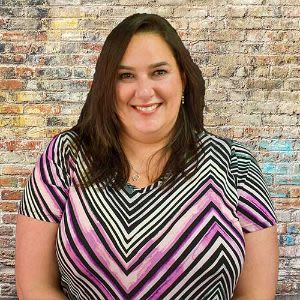
Meg Zarnick
Clinical Director
MSW, LCSW, LCADC, CCTP, CCS
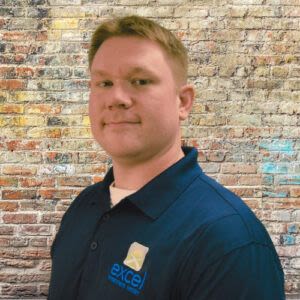
Stephen McNeer
Director of Operations

Taylor Nolan
Clinician
LPC

Priscilla Ortiz
Clinician
MA, LAC, NCC

Patrick Kelly
Clinician
MA, LAC, NCC
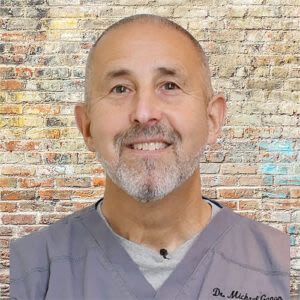
Dr. Michael Ganon
Medical Doctor
MD
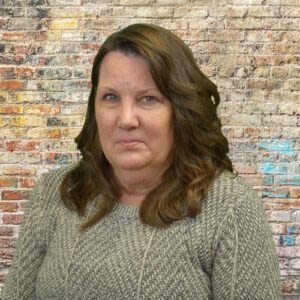
Kelly Nussbaum
Nurse
APN

Annemarie Schlomann
Nurse
APN
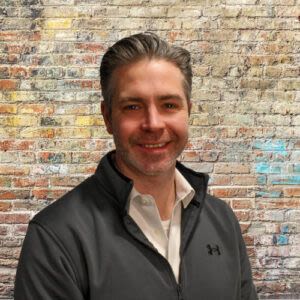
Sean Egan
Community Outreach

Bridget Sicsko
Yoga Instructor

Rebecca Dwyer
Office Manager
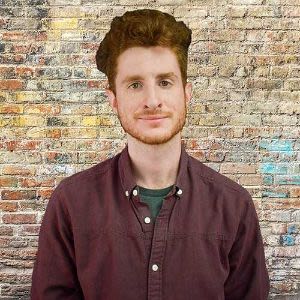
Sam Baron
CADC Intern

David Kniffin
CADC Intern
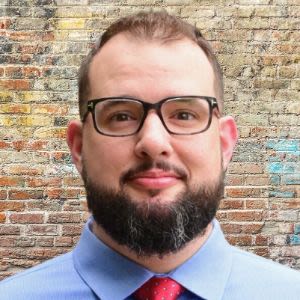
Brandon Dill
Licensed Social Worker

Jeremy Eliopoulos
Licensed Social Worker

Sean Egan
Community Outreach
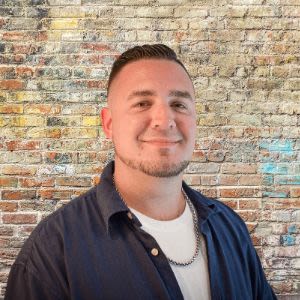
Chris Di Iorio
Community Outreach and Alumni Coordinator

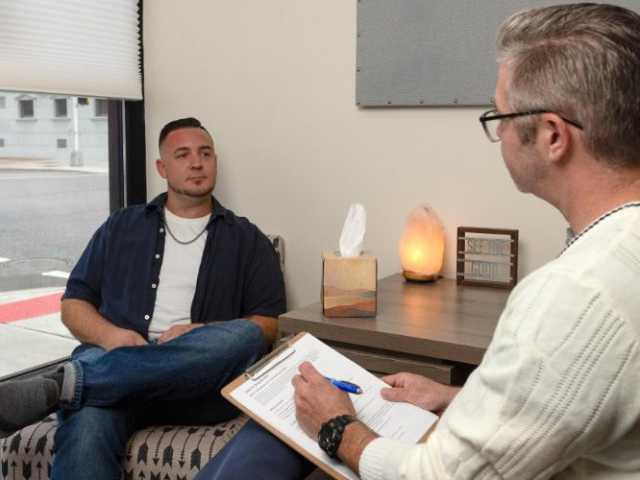


Levels of Care








Your Care Options
Specializations
Cocaine
Cocaine is a stimulant with euphoric effects. Agitation, muscle ticks, psychosis, and heart issues are common symptoms of cocaine abuse.
Prescription Drugs
It's possible to abuse any drug, even prescribed ones. If you crave a medication, or regularly take it more than directed, you may have an addiction.
Benzodiazepines
Benzodiazepines are prescribed to treat anxiety and sleep issues. They are highly habit forming, and their abuse can cause mood changes and poor judgement.
Drug Addiction
Drug addiction is the excessive and repetitive use of substances, despite harmful consequences to a person's life, health, and relationships.
Alcohol
Using alcohol as a coping mechanism, or drinking excessively throughout the week, signals an alcohol use disorder.
Who We Treat
Men and Women
Men and women attend treatment for addiction in a co-ed setting, going to therapy groups together to share experiences, struggles, and successes.
Young Adults
Emerging adults ages 18-25 receive treatment catered to the unique challenges of early adulthood, like college, risky behaviors, and vocational struggles.
Midlife Adults
For adults ages 40+, treatment shifts to focus on the unique challenges, blocks, and risk factors of their age group, and unites peers in a similar community.
Mild Disabilities
Adults with mild physical or intellectual disabilities receive treatment catered to their specific needs in a safe and clinically supportive environment.
Pregnant Women
Addiction and mental health treatment meets the clinical and psychological needs of pregnant women, ensuring they receive optimal care in all areas.
Approaches
Twelve Step
Incorporating spirituality, community, and responsibility, 12-Step philosophies prioritize the guidance of a Higher Power and a continuation of 12-Step practices.
Holistic
A non-medicinal, wellness-focused approach that aims to align the mind, body, and spirit for deep and lasting healing.
Evidence-Based
A combination of scientifically rooted therapies and treatments make up evidence-based care, defined by their measured and proven results.
Individual Treatment
Individual care meets the needs of each patient, using personalized treatment to provide them the most relevant care and greatest chance of success.
Therapies
Stress Management
Patients learn specific stress management techniques, like breathing exercises and how to safely anticipate triggers.
1-on-1 Counseling
Patient and therapist meet 1-on-1 to work through difficult emotions and behavioral challenges in a personal, private setting.
Family Therapy
Family therapy addresses group dynamics within a family system, with a focus on improving communication and interrupting unhealthy relationship patterns.
Twelve Step Facilitation
12-Step groups offer a framework for addiction recovery. Members commit to a higher power, recognize their issues, and support each other in the healing process.
Psychoeducation
This method combines treatment with education, teaching patients about different paths toward recovery. This empowers them to make more effective decisions.
Meditation & Mindfulness
A practiced state of mind that brings patients to the present. It allows them to become fully aware of themselves, their feelings, and the present moment.
Relapse Prevention Counseling
Relapse prevention counselors teach patients to recognize the signs of relapse and reduce their risk.
Conditions We Treat
Post Traumatic Stress Disorder
PTSD is a long-term mental health issue caused by a disturbing event or events. Symptoms include anxiety, dissociation, flashbacks, and intrusive thoughts.
Anxiety
Anxiety is a common mental health condition that can include excessive worry, panic attacks, physical tension, and increased blood pressure.
Grief and Loss
Grief is a natural reaction to loss, but severe grief can interfere with your ability to function. You can get treatment for this condition.
Depression
Symptoms of depression may include fatigue, a sense of numbness, and loss of interest in activities. This condition can range from mild to severe.
Codependency
Codependency is a pattern of emotional dependence and controlling behavior. It's most common among people with addicted loved ones.
Pornography Addiction
A person with a porn addiction is emotionally dependent on pornography to the point that it interferes with their daily life and relationships.
Gambling
Excessive, repetitive gambling causes financial and interpersonal problems. This addiction can interfere with work, friendships, and familial relationships.
Internet Addiction
Internet addiction is common among children teens. This compulsive disorder can damage relationships, school performance, sleep habits, and physical health.
Personality Disorders
Personality disorders destabilize the way a person thinks, feels, and behaves. If untreated, they can undermine relationships and lead to severe distress.
Substances We Treat
Cocaine
Cocaine is a stimulant with euphoric effects. Agitation, muscle ticks, psychosis, and heart issues are common symptoms of cocaine abuse.
Prescription Drugs
It's possible to abuse any drug, even prescribed ones. If you crave a medication, or regularly take it more than directed, you may have an addiction.
Benzodiazepines
Benzodiazepines are prescribed to treat anxiety and sleep issues. They are highly habit forming, and their abuse can cause mood changes and poor judgement.
Ecstasy
Ecstasy is a stimulant that causes intense euphoria and heightened awareness. Abuse of this drug can trigger depression, insomnia, and memory problems.
Co-Occurring Disorders
A person with multiple mental health diagnoses, such as addiction and depression, has co-occurring disorders also called dual diagnosis.
Psychedelics
Hallucinogenic drugs—like LSD—cause euphoria and increased sensory experiences. When abused, they can lead to depression and psychosis.
Drug Addiction
Drug addiction is the excessive and repetitive use of substances, despite harmful consequences to a person's life, health, and relationships.
Languages
Aftercare
Care Designed for Your Needs
Personal Amenities
Special Considerations
Young Adults Program
Programs for young adults bring teens 18+ together to discuss age-specific challenges, vocational and educational progress, and successes in treatment.
Activities
Yoga
Yoga is both a physical and spiritual practice. It includes a flow of movement, breathing techniques, and meditation.
What people are saying
Treatment
5.0
Accommodations
4.8
Food & Nutrition
4.9
Value
5.0
Pros
- Supportive Aftercare (4)
- Friendly & Competent Staff (3)
- Excellent & Effective Treatment Programming (2)
- Straightforward Costs & Expectations (2)
Paul
Treatment in 2023 • (180+ days) • Reviewed 11/14/23
Former Client
•Business owner
Rob S
Reviewed 02/20/24
Referring Professional
•COO
Dave
Treatment in 2020 • (180+ days ) • Reviewed 09/10/23
Loved one of a Former Client
Rachel D
Treatment in 2022 • (90 days) • Reviewed 09/15/23
Former Client






